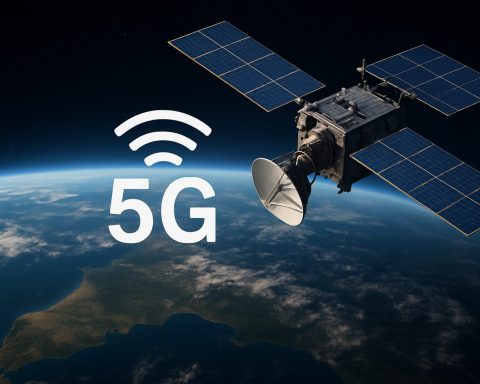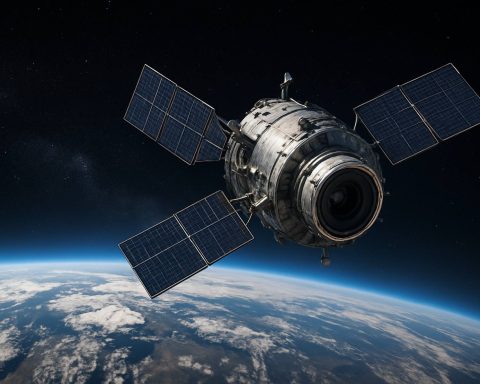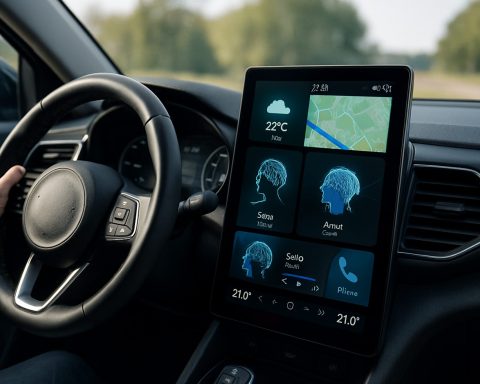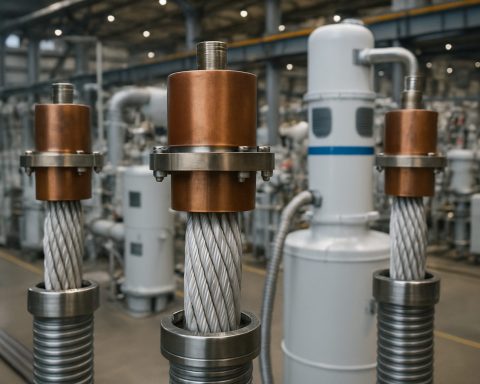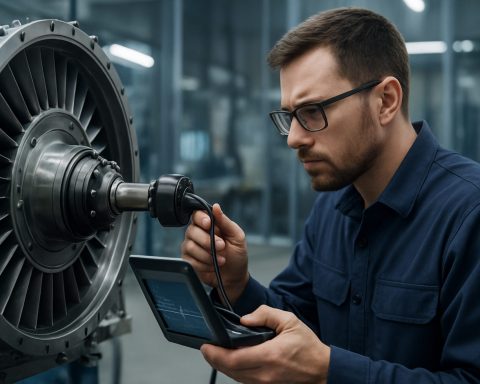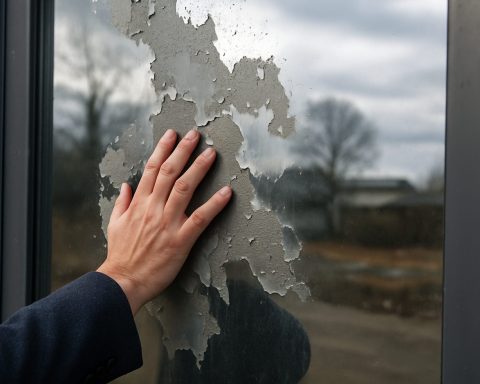- BYD is taking direct control of its electric vehicle operations in Australia, ending its partnership with EVDirect to become a factory-backed importer and distributor.
- This move promises faster delivery times, expanded dealership presence, and enhanced aftersales support for Australian consumers.
- BYD’s direct model paves the way for the launch of its luxury brand Denza, plus upcoming Yangwang and Fangchengbao vehicles featuring advanced technology and off-road capabilities.
- EVDirect retains a 20% stake in the new EV Dealer Group Pty Ltd, with management continuity ensuring stability during the transition.
- Industry analysts expect BYD’s streamlined approach to result in more affordable pricing and greater accessibility for new-energy vehicles in Australia.
When dusk falls over the continent’s vast highways and city streets, the electric car race in Australia quietly gathers new momentum. BYD, China’s fastest-rising electric vehicle powerhouse, has torn a page from the classic playbook—shedding its local distributor, EVDirect, to take the wheel of its destiny. Effective this July, BYD will now import, distribute, and shape its vehicles’ journey across Australia as a true factory-backed entity.
With each charging station that lights up, BYD’s shadow grows longer and more daring. Free from the constraints of a middleman, the automaker can now flex its muscles and accelerate the arrival of its luxury marque, Denza, a brand long whispered as a challenger to established European titans. The road is also clearing for the Yangwang line—vehicles with a “halo” reputation for bleeding-edge tech—and the Fangchengbao division, already turning heads among off-road enthusiasts worldwide.
The significance of this shift isn’t just in branding. Marketers of old might call this “cutting overhead,” but for consumers, the promise is immediacy: shorter wait times, more dealerships in more places, and aftersales support that leaves fewer drivers stranded. For BYD, which already posted impressive growth as an electric disruptor last year, the self-import model is expected to funnel additional resources into research, support, and—most critically—affordable pricing.
EVDirect isn’t disappearing entirely. The distributor will maintain a 20 percent equity in the new retail venture, EV Dealer Group Pty Ltd, but with BYD controlling the remaining 80 percent through parent Eager Automotive, its future in the driver’s seat appears ever more secure. Executive stability further assures investors, with EVDirect’s Luke Todd taking the role of executive chairman and David Smitherman transitioning into the CEO role for the new venture.
Globally, the BYD name is synonymous with relentless innovation—this is, after all, the automaker snapping at Tesla’s heels for the electric crown and leading the charge in battery tech. Industry analysts believe BYD is aiming to lower new-energy vehicle barriers even further, hoping to tap into a swelling demand among Australians keen on greener, more cost-effective rides.
The ultimate message? Electric dreams are no longer on the horizon—they’re rolling out on Australian roads now, hyped by a bold direct-to-market gamble from one of the industry’s most ambitious players. The coming months will reveal whether BYD’s move delivers a jolt big enough to reshape the landscape, but one thing is clear: the spark that started in China is about to set the Australian market ablaze.
BYD’s Direct Takeover in Australia: What It Means for EV Buyers, the Market, and New Luxury Entrants
When dusk falls over the continent’s highways, Australia’s electric vehicle market isn’t just humming—it’s on the verge of a seismic shift. BYD’s bold move from distributor model to factory-backed direct control, as highlighted in the source article, is just the beginning. Here’s what the press didn’t fully reveal—and why every EV enthusiast, prospective buyer, and industry watcher should pay attention.
—
What Is BYD’s New Direct Approach in Australia—and Why Does It Matter?
BYD’s transition to a factory-backed importer model means it now manages all sales, distribution, and customer experience aspects. Globally, direct sales models (similar to Tesla’s) often lead to:
– Transparent and standardized pricing
– Improved aftersales support
– Centralized control over inventory and deliveries
– Stronger brand representation
This is significant in Australia, where slow EV uptake has been attributed to long wait times, sparse support infrastructure, and high upfront pricing (AFR, 2023).
—
New Brands Incoming: Denza, Yangwang, and Fangchengbao Explained
1. Denza: BYD’s Premium Gamble
Denza is a joint venture with Mercedes-Benz, aiming to blend European luxury with China’s tech prowess ([BYD.com](https://www.byd.com/)). Expect Denza to compete head-to-head with Mercedes EQ, Audi e-tron, and BMW iX models. Key features:
– Advanced infotainment and safety features
– Larger battery packs (upwards of 100 kWh)
– Strong emphasis on sustainable interiors
2. Yangwang: Tech-forward “Halo” Models
Yangwang is BYD’s answer to Tesla’s Model S Plaid or Lucid Air—offering ultra-luxury, high-performance, and cutting-edge technology. Recent reveals include:
– BYD Yangwang U8 SUV with quad-motor system
– Water-fording, “tank turn” capability for off-roading
3. Fangchengbao: Rugged and Off-road
Targeting adventure enthusiasts, these vehicles emphasize:
– Robust chassis with 4WD systems
– Advanced battery thermal management
– Marketed as rivals to Land Cruiser and Jeep Wrangler
—
Key Questions and In-Depth Answers
Q1: Will car prices actually drop now that BYD controls distribution?
A: Historical precedent from other markets suggests direct sales lead to price cuts by eliminating unnecessary markups. For example, when Tesla launched its online sales model, Model 3 prices in China fell by 5-7%. Expect BYD to pass similar savings on to Australians, especially as more models arrive.
Q2: How does this benefit aftersales service and warranty claims?
A: With direct control, BYD can set up branded service centers and enforce strict quality standards, minimizing “handoff” issues that plagued earlier EV rollouts. Expect warranty claims, part replacements, and recalls to be handled more swiftly.
Q3: What about compatibility with existing charging infrastructure?
A: BYD’s recent models adopt both CCS2 charging (the local standard in Australia) and Type 2 AC connectors, ensuring compatibility with most public chargers. DC fast-charging (up to 150 kW) is available on new models.
Q4: Are there any risks, limitations, or controversies?
A:
– Australian dealership groups have lobbied against direct-sale models, fearing disruption of traditional franchises.
– Long-term parts availability and regional service coverage can be a challenge if BYD grows too quickly.
– BYD’s supply chain has been scrutinized for environmental and labor issues, although the company has committed to ESG improvements ([BYD.com](https://www.byd.com/)).
—
Life Hacks & How-To: Making the Most of BYD’s Expansion
1. Early Adopter Advantage:
With new showrooms opening, early buyers may nab lower prices, demonstrator deals, and better financing.
2. Aftersales Insight:
Register your vehicle with BYD directly for faster recall & software update notifications.
3. Incentive Stack:
Combine BYD’s keen pricing with government EV rebates for thousands in savings (check state-specific offers!).
—
Market Forecasts & Industry Trends
– EV Uptake in Australia is tipped to double by 2025, with BYD and Tesla alone projected to capture over 50% of new EV sales (BloombergNEF, 2024).
– The SUV and 4×4 EV segment is set for aggressive growth with the launch of Fangchengbao and Yangwang lines, targeting Australia’s love for outdoor adventure vehicles.
– BYD outsold Tesla globally in several quarters of 2023, cementing its reputation as more than just an affordable brand—they’re an innovation juggernaut.
—
Features, Specs & Pricing Preview
– BYD Dolphin: Sub-$40,000, 400+ km range, 5-star ANCAP rating.
– Atto 3 SUV: $48,000–$52,000, 420–480 km range, V2L (Vehicle-to-Load) capability.
– Coming Soon: Denza & Yangwang: Projected $80,000+ range, luxury interiors, Level 2+ autonomous features.
—
Pros & Cons Overview
BYD Factory-Direct Pros
– Lower, more transparent pricing
– Faster delivery and parts
– Consistent customer experience
Cons & Caveats
– Disrupts traditional dealers (potential transition hiccups)
– Brand-new luxury lines may face teething issues
– Rapid expansion sometimes strains service network
—
Security & Sustainability Commitments
– Battery Safety: BYD’s Blade Battery tech reduces fire risk and is cobalt-free.
– Corporate ESG: BYD releases annual sustainability reports, progresses on emissions reductions, and pushes for ethical sourcing ([BYD.com](https://www.byd.com/)).
—
Actionable Recommendations & Quick Tips
– For buyers: Consider test drives as soon as new models hit showrooms; factory direct might mean limited first allocations.
– For current EV owners: Watch for BYD’s fast charger partnerships—rumored tie-ups with Chargefox and Evie Networks will ease long-distance travel.
– For investors: BYD’s global momentum and direct sales position it well against legacy and tech disruptor rivals.
—
In summary, BYD’s bold direct-to-market leap electrifies the Australian EV race with the promise of lower prices, faster access, and a bigger, more diverse range. Stay ready for new flagship releases, tech upgrades, and service improvements—because the spark lit in China is set to ignite not only your next drive, but the whole EV market Down Under.
Related: Visit BYD for more information and the latest updates.


